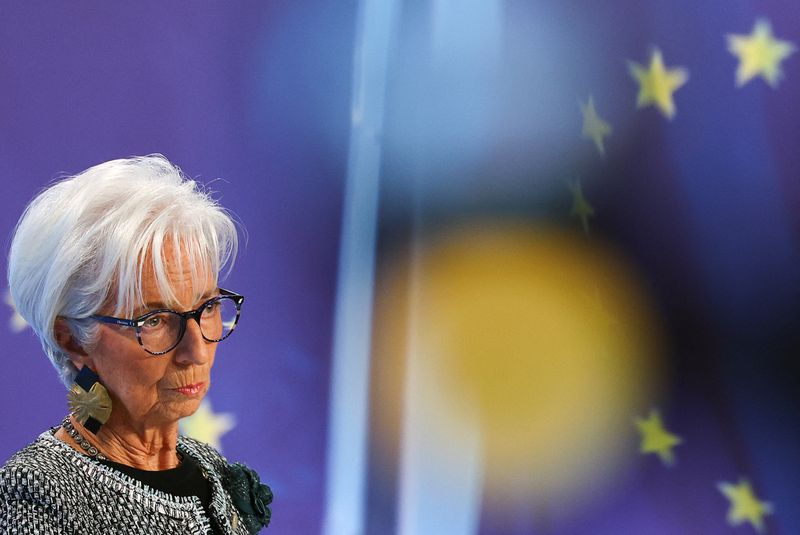FRANKFURT (Reuters) – The European Central Bank expects to cut interest rates further if inflation settles at its 2% target as it expects, some of the ECB’s top brass said on Monday.
ECB President Christine Lagarde and the bank’s most influential policy hawk, Isabel Schnabel, cemented market bets on further gradual reductions in borrowing costs in the euro zone as the economy stutters and fears about high inflation fade.
“If the incoming data continue to confirm our baseline, the direction of travel is clear and we expect to lower interest rates further,” Lagarde said in a speech in Vilnius.
Inflation in the euro zone was 2.3% last month and the ECB expects it to settle at its 2% target next year after hitting double digits in the wake of Russia’s full-scale invasion of Ukraine in 2022.
The euro zone’s central bank lowered its key rate last week for the fourth time this year and opened the door to more reductions by removing a reference to keeping rates “sufficiently restrictive”.
“I hope the picture is a little clearer for those who were wondering what this change of language meant last week and what we’re looking for in the near future,” Lagarde said after delivering her speech on Monday.
Schnabel was more explicit later on Monday, saying the ECB should keep cutting interest rates in a gradual manner until they reach neutral.
“Price stability is within reach,” Schnabel told an event in Paris. “Considering the risks and uncertainties we are still facing, lowering policy rates gradually towards a neutral level is the most appropriate course of action.”
While a neutral interest rate is a vaguely defined concept, Schnabel sees it between 2% and 3% and Lagarde has said that ECB research puts it at 1.75%-2.5%.
This indicates that several more cuts in the 3% deposit rate may come before the neutral debate heats up.
Financial investors expect the ECB to cut rates by 25 basis points at each of its next four meetings but have for now shelved bets on larger reductions worth half a percentage point, in line with Schnabel’s call for gradual moves.

Schnabel said the ECB should not try to solve the euro zone’s structural issue, such as a lack of investment, by adopting an expansionary monetary policy and directed veiled criticism at her predecessors for trying to do so in the last decade.
“During the 2010s…a highly accommodative monetary policy stance over a long period was unable to lift the economy out of the low-growth, low-inflation environment,” she said. “Structural policies are the responsibility of governments.”

